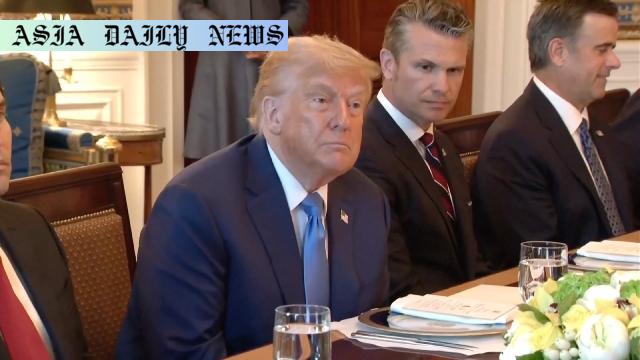Defensive weapons, US boosts Ukraine’s defenses with additional arms to counter ongoing Russian attacks, reinforcing global support.
The US plans to provide Ukraine with more defensive weapons amid Russian attacks.
President Trump emphasizes Ukraine’s self-defense capabilities.
The DoD remains vague on the specific types of weapons being sent.
Ukraine faces intensifying missile and drone assaults.

US Expands Support for Ukraine with New Weapons Shipment
The United States has reaffirmed its commitment to supporting Ukraine in its ongoing battle against Russian aggression by promising additional “defensive weapons” shipments. Announced by President Donald Trump and confirmed by the Department of Defense, this decision underscores the administration’s recognition of Ukraine’s embattled situation. President Trump noted the increased intensity of attacks faced by Ukraine, stating, “They’re getting hit very hard now,” and highlighted the nation’s urgent need for assistance in bolstering its defense systems. By providing such critical support, the US aims to ensure Ukraine is better equipped to deter and counter Russian missile strikes and drone assaults.
Details on Weapons Shipments Remain Unclear
While the announcement demonstrates a clear policy direction, the types of defensive weapons to be supplied remain undisclosed. The Department of Defense has withheld such information to ensure operational security and avoid potentially compromising Ukraine’s defensive strategies. However, past shipments have included artillery rounds, missiles, and air defense systems, items crucial to responding to the ongoing onslaught of missile attacks. Earlier, shipments were halted due to concerns over declining US armament stockpiles, but this latest support signals renewed confidence in the capacity to aid Ukraine without impacting domestic security interests.
The Importance of Strengthening Air Defenses
Ukraine’s most pressing challenge remains its air defense capabilities. Incremental attacks from sophisticated Russian drones and precision-guided missiles have placed immense pressure on the nation’s military infrastructure. In response, the US’s provision of defensive weapons is more than symbolic—it reflects a joint effort to mitigate the threats posed by an asymmetric adversary. Economic and logistical challenges notwithstanding, nations allied with Ukraine continue to emphasize the moral imperative of countering aggression. The administration’s decision, though rooted in national and international politics, resonates with the broader theme of maintaining global security and sovereignty.
A Long Road Ahead for Ukraine’s Defense
Despite increased aid, the path for Ukraine is fraught with complexities. Beyond military support, there is a need for economic resilience and international solidarity. The latest move by the US aligns with NATO’s broader strategy of ensuring the regional stability of Eastern Europe. It also reflects an acknowledgment of the moral obligation to support a nation striving to maintain its sovereignty amid foreign aggression. However, the success of such initiatives will depend heavily on efficient logistics, long-term investments, and the unified will of global leaders to address challenges diplomatically and militarily.
Commentary
The US’s Continued Role in Ukraine’s Struggle
The announcement of additional defensive weapons for Ukraine is a significant development, further highlighting the United States’ steadfast commitment to assisting its allies. Given the current geopolitical landscape, this decision is both strategic and symbolic. It demonstrates the administration’s acknowledgment of the challenges Ukraine faces while reinforcing its stance against unwarranted aggression. For Ukraine, every step toward enhanced defense capabilities is critical, not only on the battlefield but also in sustaining its people’s morale and determination to resist invaders.
Navigating Complexity: Balancing Aid with Stockpile Management
It is worth appreciating the complexities faced by the US in delivering such aid. Balancing the need to provide Ukraine with adequate support while maintaining sufficient reserves within national stockpiles is no easy task. Yet, the ability to navigate these logistical challenges is what makes ongoing support so impactful. This effort demonstrates America’s resourcefulness in prioritizing international security without compromising its own sovereignty. As history has shown, such strategic aid decisions can turn the tide in wider geopolitical movements.
Beyond Military Assistance: A Call for Broader Collaboration
While the provision of defensive weapons is undeniably important, it would be remiss not to consider the broader context of the current crisis. Ukraine needs more than just military aid; it requires a multifaceted approach that includes humanitarian support, economic aid, and diplomatic backing on the global stage. It is through a comprehensive strategy that the international community can truly help Ukraine withstand and recover from the impact of war. Outlining such a strategy could also serve as a blueprint for dealing with other similar conflicts globally.


